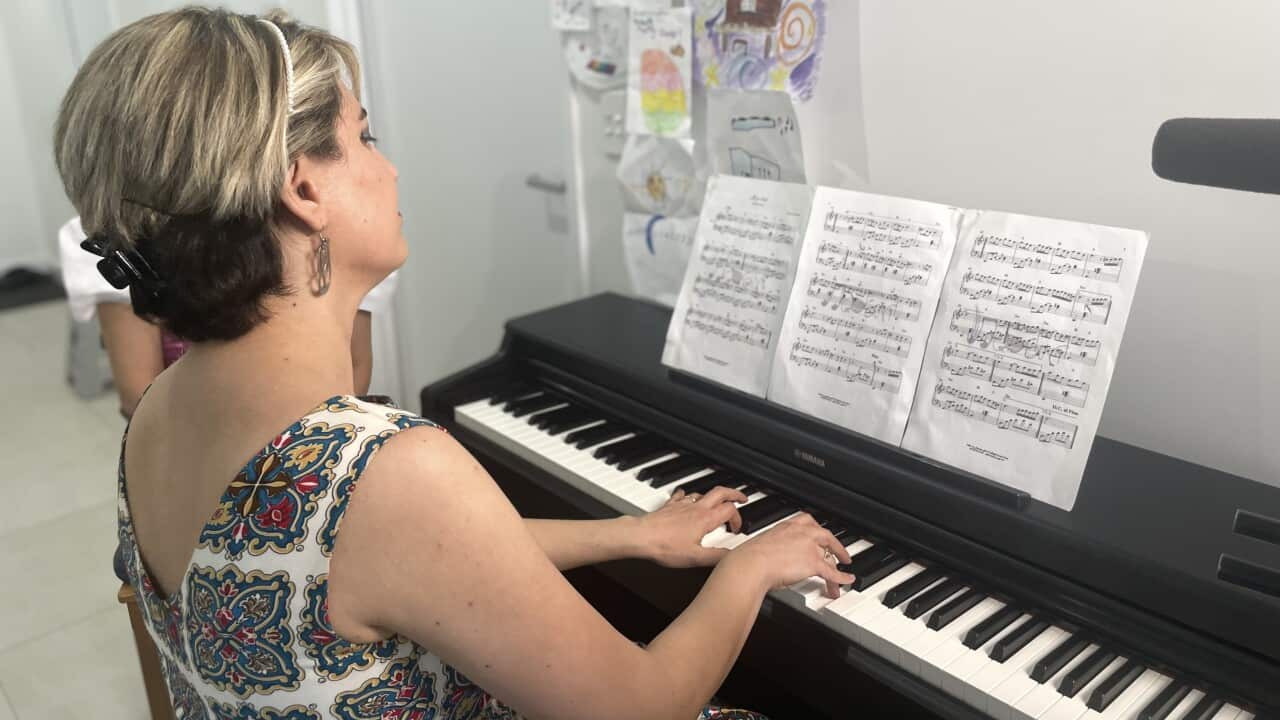TRANSCRIPT
A Persian ode to a woman's beauty. Maral Esfand is practising an age-old folk song with her bandmate Shahnaz Martin in her apartment.
Her hands may be tapping the piano keys in Sydney, but her heart lingers back to Iran.
“I think everything and everyone in Iran or every Persian person out of Iran is affected by what's going in Iran and no one can stay away from that. And so are we.”
Maral grew up in Iran and has been playing piano for as long as she can remember. But she left her home country at the age of 17, realising a musical career would be difficult if she stayed.
“I have also played violin for seveal years and was part of two orchestras at that time. Let me tell you, we never got to perform. We used to practise a lot, we used to rehearse a lot, but it was so hard to actually get performing. Also, it is not okay to show an instrument in TV and I'm not even talking about women singing because that's totally out of frame.”
Amin Saikal is an Emeritus Professor of the Middle East and Central Asian Studies at the Australian National University.
He says the Iranian Revolution Guard Corp's strict interpretation of Islam means that musical performances are forbidden.
“Music should not really be a crime. But of course, Iranian state ideology dictates that any form of performance which goes against their version or interpretation of Islam is regarded as unlawful.”
A year has passed since protests erupted in Iran where many unleashed against the Islamic Republic's strict rules.
That pent-up anger has emboldened others to continue protesting, raising their voices to the beat of their music.
A video posted online shows university students singing a cover of an American song together, and another video shows a young woman singing a famous Iranian song on public transport, with other commuters are clapping in her support.
Professor Saikal says they face being accused of serious crimes if they're caught singing by the country's police.
Anything that works against the ideology of the state, that is punishable. Of course in the last year or so there have been demonstrations in Iran, particularly on the part of women. Many people have been arrested and some of them have been convicted and some of them have been hanged for crimes on earth or crimes against God.”
Maral moved to Australia last year and now leads an all-female band, AvaZan, which is Persian for 'Voices of Women' and is fittingly aimed at empowering women to enter the professional music industry.
In July, the group performed a Persian rendition of the famous Italian song Bella Ciao at a festival in NSW's Blue Mountains.
That song has become the anthem of the worldwide movement. Together, wearing colourful Iranian vests as their band uniform, they sing the lyrics, "either all together or all alone ... the chain of universal oppression breaks with our hands."
“Establishing the protests has not been in exact relation to the Mahsa Amini protests but it's a result of the fights that women have been doing all through the years. Having a stage dedicated to only women comes parallel with what's going on in Iran. The goal to be heard, the goal to be seen and having aspects conquered by women, aspects believed to be just for men.”
Now, Maral teaches piano to 60 girls a week and that, she says, is her true passion.
The next generation taking the lead is music to her ears.













